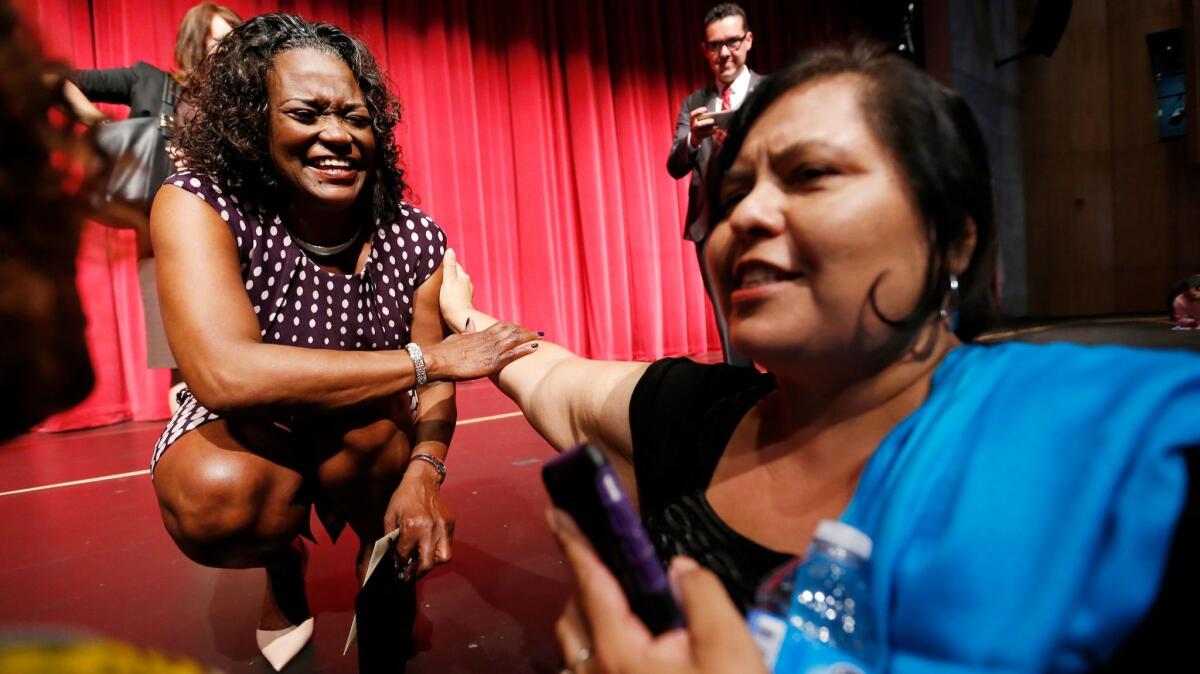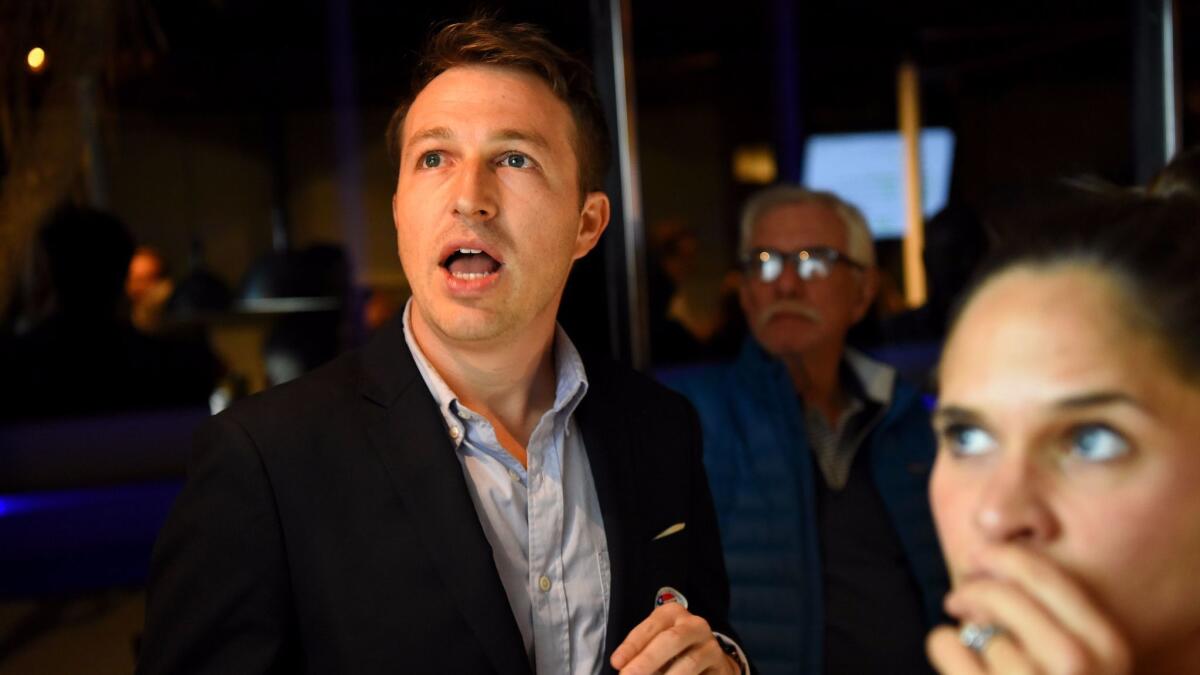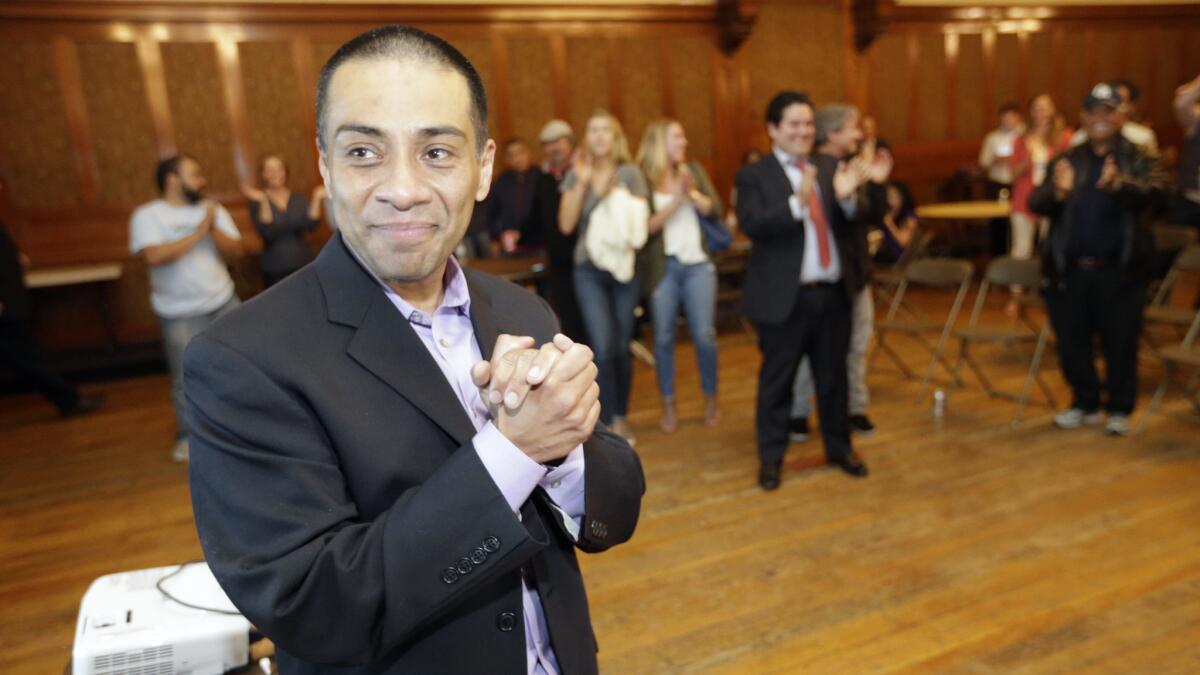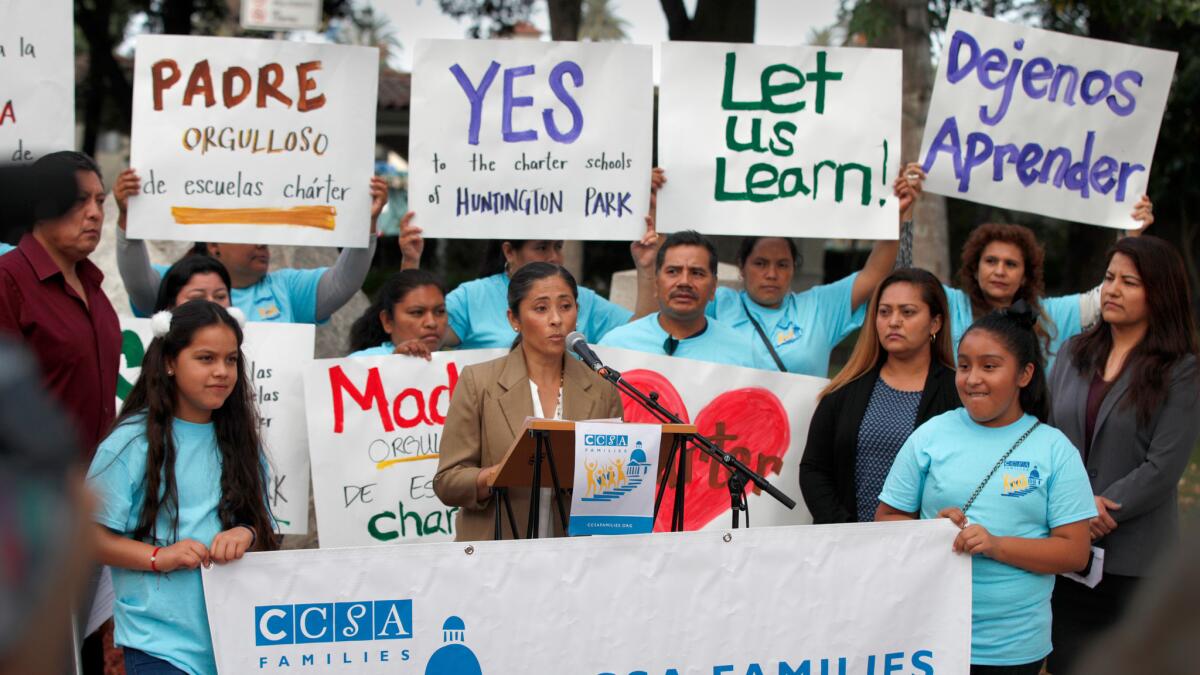New LAUSD board has its first meeting today, with charter school backers in the driver’s seat

- Share via
After the most expensive school board election in U.S. history, charter school backers on Thursday will formally assemble their first-ever majority on the Los Angeles Board of Education with a mixture of high expectations and significant challenges.
Charter forces for years have criticized the mammoth school district as blocking needed reforms, pandering to employee groups and simply failing to significantly improve the education of L.A. students. Now, they will be in their best position ever to bring about change, and that brings both pressure and opportunity.
Near the top of the pro-charter agenda is likely to be an easier process for approving new schools and renewing existing charters, which advocates have long decried as too difficult. They also want charters to take over more space on district-owned campuses.
Some hardcore charter backers have favored a more radical agenda: a massive charter school expansion or even using charters as the vehicle to dismantle the school system entirely.

A closely watched agenda
But the new board, which meets for the first time Thursday, must also confront familiar limitations, including vastly underfunded retiree health benefits and steep increases in mandatory payments to state pension funds. Like the old board, this one still has a traditional school district to run, the second-largest in the nation. And continued charter growth exacerbates district finances, because when students exit the district, they carry with them state and federal funding.
For better or worse, the district bureaucracy, which at times has fought to limit the growth of charters, remains entrenched. The outgoing board helped see to this in June with a contract extension for Supt. Michelle King.
“If the charter school advocates’ expectations are to simply increase market share and create a deregulated environment for themselves, they will be disappointed, and they should be,” said Charles Kerchner, professor emeritus and senior research fellow at Claremont Graduate University’s School of Educational Studies. “The big issue is whether the new ‘reform’ board continues what I’ve called the Charter School War or ends the war and claims the very large peace dividend.”
Kerchner suggested a new, nonpartisan goal: “How to design a 21st century school system rather than whether the old system should be charter-friendly or not.”
Charters are privately managed public schools that operate like nonprofit organizations within the school district. Most are nonunion — labor, especially the teachers union, spent millions in the board races, although not as much as the pro-charter forces. L.A. has more charters and more students in them — about 16% of total enrollment — than any other school system.

Making it easier for charters
A possible starting point for the new board would be easier and more extensive access for charters on district campuses. Securing locations to operate has been a fundamental problem for charters in Los Angeles, with its high real estate prices. State law requires districts to provide charters with classroom space that is “reasonably equivalent” to that of district-operated programs.
Disputes over what this means have landed repeatedly in court. But charters can expect no immediate relief, because it’s too late to make changes for the coming school year.
In addition, it isn’t clear that the new board members, Nick Melvoin and Kelly Gonez, side fully with charters based on recent interviews. They appear sympathetic to parents at traditional schools who have furiously objected to surrendering space that is currently being used for such things as after-school programs, tutoring, drama groups and computer labs.
Another expected push — making it easier to get new charters approved and existing charters renewed — would depend on changing how the district evaluates charters.
Right now, a group of civil servants reviews new charter applications and renewals. It’s a process developed over two decades and involves a review of data, collecting reams of documentation and conducting a small number of school visits.
Charters would welcome a simpler, faster process as well as feedback about how they are doing. But those changes could require more resources and be subject to legal review, among other things.
Historically, board members, even pro-charter ones, have rarely overruled recommendations of the charter office. The vast majority of charters received positive evaluations.

Who will lead the school board?
The first step Thursday is for the seven board members to elect a new board president from among their own — a much-watched ritual full of symbolism but also an early sign of political force.
After an election cycle that burned up $15 million, Melvoin and Gonez will join incumbents Monica Garcia, who was reelected in March, and Ref Rodriguez to make up a charter-friendly majority. They could see to it that Garcia or Rodriguez holds the gavel for the next 12 months.
Rodriguez, the co-founder of one of the largest charter groups operating in the Los Angeles Unified School District, appears to have the inside track.
In addition to presiding over meetings, the president frequently acts as district spokesperson, lobbies other officials on behalf of the school system and assigns board members to committees, which can increase or limit their influence.
The most recent board president, Steve Zimmer, leaves behind a power vacuum after losing to Melvoin in a May runoff. Zimmer treated his post as a full-time job and became something close to a second superintendent, with an outsize influence on the policies that King carried out.
An altered power dynamic favoring Garcia appeared to be evolving in June, when staff members prepared a presentation that seemed to align with Garcia’s push on a controversial measure before the board. Her goal was to transfer federal aid away from some schools and to concentrate more of it instead at campuses that serve the highest percentage of low-income families. The measure fell short, for now, when the full board tabled its consideration.
If nothing else, the episode showed flexibility on the part of King and her staff in adjusting to a new political reality. Moreover, members of the pro-charter bloc have indicated no objection to portions of King’s preexisting agenda, such as making district schools better competitors with charters and expanding district-run program that parents want.
In any event, they are unlikely to move against King quickly, barring a real or perceived crisis for which they choose to hold her responsible.
With their win in hand, charter backers have toned down their rhetoric. There are, for example, no public statements about a controversial proposal by backers to massively expand the number of charter schools in L.A.
“Charter schools in Los Angeles share a common goal of providing every child with access to high-quality public education regardless of the type of school they attend,” said Laura J. McGowan-Robinson, a senior vice president with the California Charter Schools Assn.
Union ready to fight
Labor unions, the other major power force in school district politics, have promised no honeymoon period for a pro-charter board. The leadership of the teachers union has been especially restive.
“We expect the new school board members to represent all students and build the civic institution of public education, not tear it down,” said Alex Caputo-Pearl, president of United Teachers Los Angeles. “While we hope the new board members understand this, we also know who bought the last election, and we know the battle ahead to get the schools our students, educators and communities deserve. We’re ready to continue that battle.”
Twitter: @howardblume
ALSO
Medicaid’s vital role for children in Trump country
These small, little-known colleges may be more affordable than you think
Schools are boosting graduation rates by offering ‘credit recovery.’ But what are students learning?
More to Read
Sign up for Essential California
The most important California stories and recommendations in your inbox every morning.
You may occasionally receive promotional content from the Los Angeles Times.














